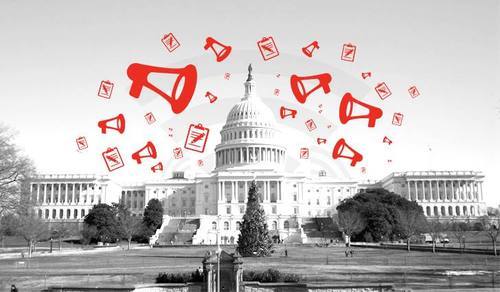
An initiative for or against something needs to have a minimum of support in order to be significant. Internet is the most easy and natural way to aggregate a consensus. Platforms such as social networks are already revolutionizing the way information is read, thought and interpreted. The sharing of the news on social networks by those who consume it is a step away from the like button or the RT button.
The same applies to demonstrations, awareness, calls-to-action. There is no online message that cannot potentially become viral, cannot move freely, reaching its target audience. There is an exception. In order to be relevant, the mobilization needs to mobilize, inspire action, provoke a concrete reaction and not remain vague participation, another ‘like’.
The debate on slacktivism – the deformation of activism by clicking “on the couch” without a spontaneous motivation if transposed in real life – has been discussed for years. Mailboxes and Internet pages are full of popular petitions which collect many signatures, but without concrete social importance. On the other hand, a strong online participation is not necessarily to be considered a simple subscription at a distance, without tangible effects in reality. It can turn into something useful, practical, at least symbolically.
This is the case of the online mobilization around net neutrality, that pushed the US Federal Communications Commission to express its support during the vote in February. “Today’s net neutrality rules would not exist without the tireless work of activists both in the streets and behind screens”, wrote Jay Cassano on WagingNonViolence.
In March 2012, the mother of Trayvon Martin, the 17 year old killed a few days earlier by George Zimmerman, a neighborhood watch volunteer, launched a petition on Change.org to demand justice for the death of her son, and a conviction for the murderer, who always said he had fired in self-defense. The petition quickly reached 2.2 million signatures (it became the most popular campaign in the history of the website at that time) and Zimmerman, initially released, was later arrested and charged with second-degree murder.
If it is not possible to establish a clear correlation between the online petition and the arrest of Zimmerman, certainly the mobilization on the Internet, along with the general outcry, supported the dissemination of the story and increased the pressure on the local authorities, “forced” to be on the case.
The same scenario for another success story, in which the mobilization against the increase in fixed costs for a debit card of Bank Of America led the US Congress, after 300,000 signatures were collected by online petition launched by a babysitter, to review the status of the legislation on bank charges.
Physical mobilization, virtual participation, pressure. Change.org tries to put itself halfway between the slacktivism and “physical” campaigns, those face to face, with leaflets and signs, to assemble the broadest possible consensus around a cause and turn it into something relevant. To unite what the founder and CEO of the platform calls “false divide,” seeking the middle ground between clicktivism on the couch and the sit-in in a square.
Currently, Change.org has over 80 million users in 196 countries. It is the world’s largest platform which allows anyone to launch petitions, encouraging – like its name – “change.” Founded in 2007, many of its petitions concern justice, environment, human rights, health, and currently it manages to keep its business going through advertising and partnerships like the one with Amnesty International.
The goal, as explained by the 24 year old deputy campaigns director Nathan Elverly, is to really do for campaigns what “Instagram has done for photos or YouTube has done for video,” the “official” platform for mobilization, which manifests and spreads online, but that wants to look at its results in reality.
Ben Rattray is the founder and CEO of Change.org. He is considered one of the most important theorists of the intersection between technology, innovation and social change. Publications such as Time Magazine, Fortune and BusinessWeek consider him one of the most influential figures of the United States in the field of social entrepreneurship. Rattray will be a speaker at the International Journalism Festival, which will take place in Perugia from 15 to 19 April.


